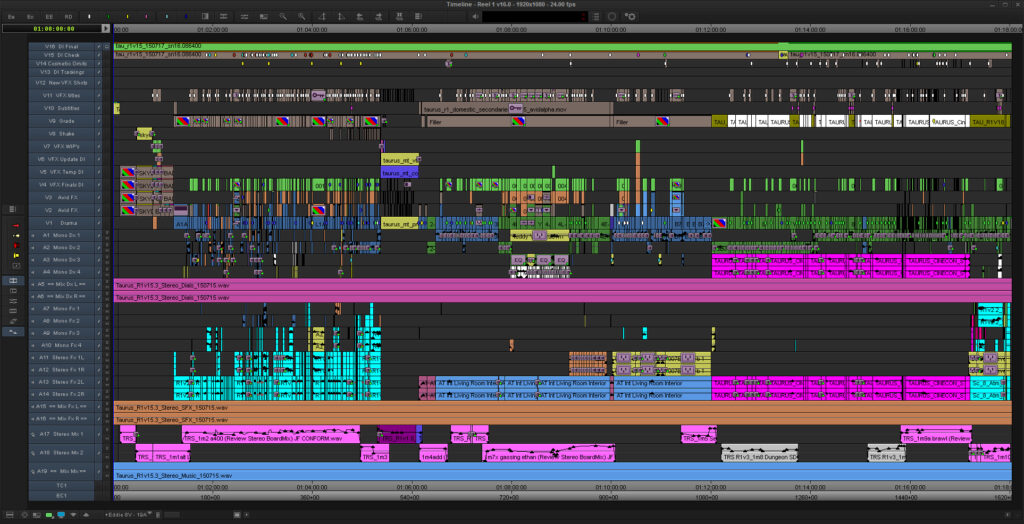by NYFA Instructor Igor Torgeson

With a new semester beginning, students at NYFA campuses are starting their first introduction to Avid’s Media Composer system. Hard drives are being formatted, project directories are being created, and folks everywhere are wondering to themselves “What is YCbCr anyway?”
As Post Production instructors, we often get the asked how Media Composer became the software of choice at the New York Film Academy. I can only assume that question is also asked at the many film schools where Media Composer is the required software.
This uniform approach to editing software comes from three basic facts about Media Composer that have been consistent since the 1990’s and look to continue to be true for at least the next five to ten years.
1. Avid Media Composer is the Used in the Industry.
All of the films nominated the Academy Award for Best Picture in 2018, as well as all the films nominated for Best Editing for 2018, were edited using Avid Media Composer.
2. Proficiency in Avid Media Composer Translates to Proficiency in Other Editing Platforms
Students sometimes find the first few sessions with media composer a bit challenging, as the interface does very little to inform you what everything is and what it does. This is a legacy of the software’s creation by engineers for technically-inclined individuals.
The thing to remember, however, is that all the other Non-Linear Editing software on the market is at least in some part inspired by or reacting to Media Composer. That means the general workflow of every platform is the same. Media gets into the software. A window allows the editor to view and listen to the media. The editor chooses the media to include in the show and places it in a timeline, which can be viewed in another window. This is the same in every platform!
Once an editor becomes comfortable with this process in Avid Media Composer, moving to other platforms becomes easier, as the switch is simply a matter of finding the same tools in the new software, as well as understanding which tools the new platform has automated or eliminated.
3. Avid Editors Earn More Than Editors On Other Platforms
Of course, success as an editor is first and foremost a result of talent, skill, and experience — whatever the platform. Nevertheless, the data shows that there is a positive difference in income for Avid editors.
Once an editor learns Avid, it’s relatively easy to shift to a new platform. So not only does an editor have an economic advantage by knowing Avid, in the absence of Avid jobs, it’s easy to shift to another software.
So with those three basic facts in mind, Avid Media Composer has been the clear choice for editing software.
